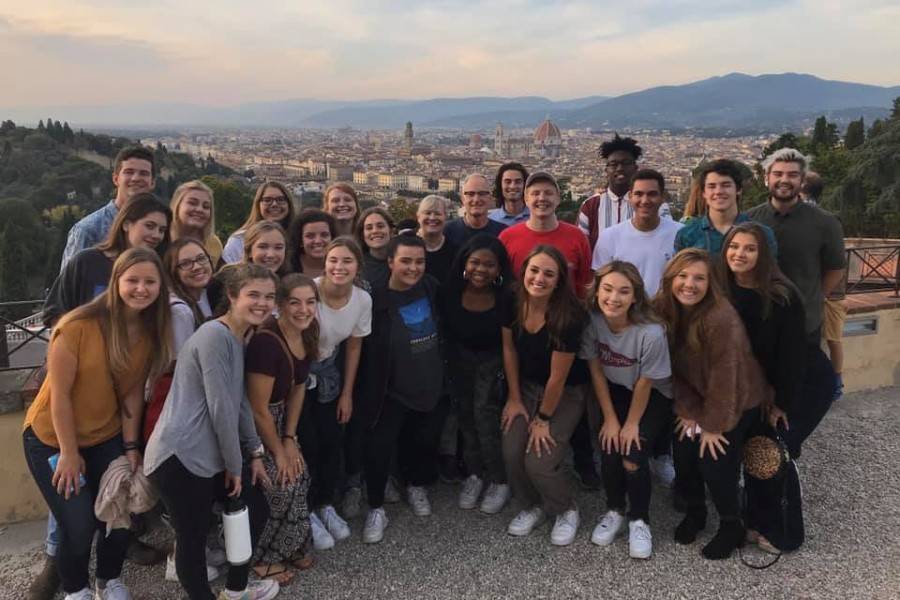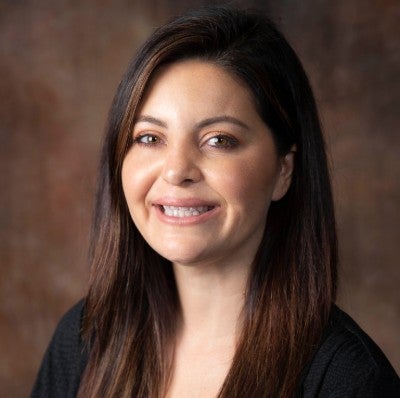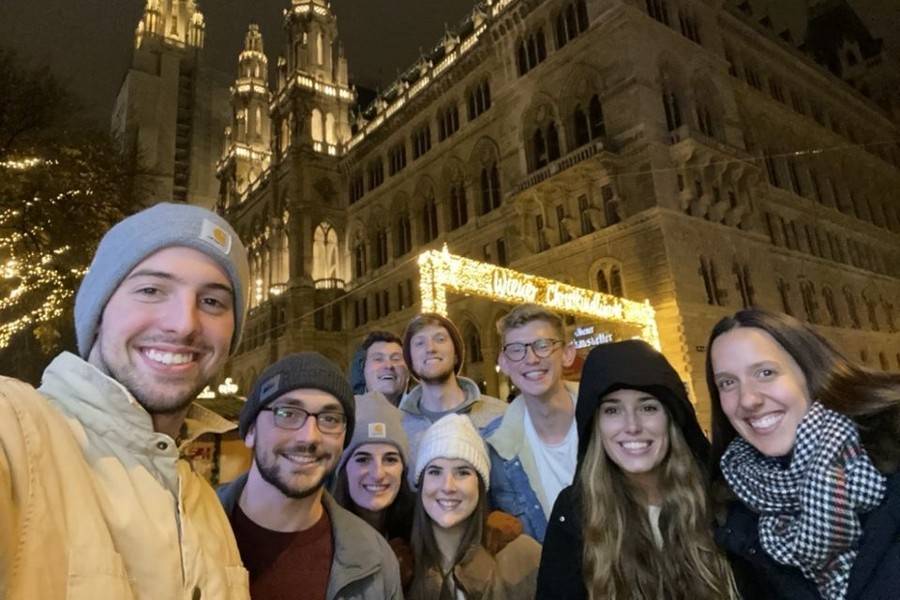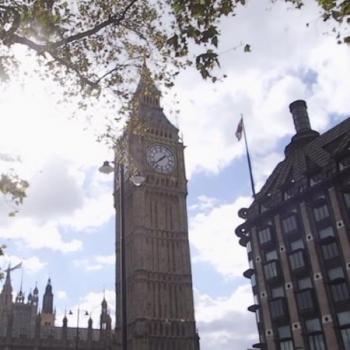Zanolini has great expectations for Global Learning
Rebecca Zanolini, new director of the Global Learning program at Lipscomb, has an inspired vision for global learning.
Kalli Groce |

One of the many picturesque views in Florence, Italy.
Lipscomb University’s Global Learning program already offers students experiences they can’t get anywhere else. From studying Renaissance Art History in Florence to English Literature in London, Lipscomb’s study-abroad opportunities take classes in students’ areas of interest from good to great. Now, Rebecca Zanolini and the faculty and staff here and abroad are hoping to take the program itself to a new level.
Currently, students can participate in a wide range of study-abroad opportunities through Lipscomb, from short-term programs that last a few days or weeks to semester-long undergraduate programs in Vienna, London (fall only), Florence and Costa Rica. Students in the undergrad programs take general education classes, such as language, literature and Bible, as well as a cross-cultural class and classes in the discipline of the on-site faculty. Many Lipscomb students say that studying abroad is the highlight of their college careers.
Zanolini knows how life-changing studying abroad can be from personal experience. She has been coming and going from Costa Rica for more than 20 years, having studied there in high school. “I am a product of the study-abroad experience,” she relates. “I tell my students, ‘I can trace back me being here, talking to you now, to that moment 21 years ago when I decided to go study abroad the very first time. I fell in love with everything about it.’ ”

Rebecca Zanolini
Zanolini worked for Lipscomb from 2009 to 2015 as an adjunct Spanish professor, and she fell in love with the community and culture at Lipscomb. In 2016, right after successfully defending her dissertation and walking, she went abroad and took a job in Costa Rica, where she started a study-abroad program and different international initiatives. She helped set up networking for the university she worked for there with universities in the U.S. and Canada, as well as in Europe.
In Costa Rica, the university was smaller, and she did a little bit of everything for the program, so she got experience over the full range of responsibilities that her office at Lipscomb now covers. At that time, she acted as executive director but also site director, and she received the students, planned the curriculum and taught the classes. This experience was invaluable, because it gave her a complete understanding of how the program should work. “It was great preparation,” she notes.
After her job in Costa Rica, Zanolini knew people who were going to China to start an international school. When the opportunity to join them came across her radar, it wasn’t of too much interest to her. But her dissertation and a lot of her research was on diversity, and it was an unexpected opportunity to put her values into action.
“Through my research and experience, I really felt like I understood the minority experience insofar as the Latino experience in the United States and to a lesser extent, but still a great extent, the African-American experience in the United States,” she explains. “But I knew nothing about the Asian experience. When that came across my radar, I thought, if I really want to pride myself on being somebody who is an expert on diversity and understanding multiculturalism, I need to go.”
After praying about it for several months, everything worked out and she went as the assistant principal to a K-12, private, international school in Hefei, China, a city relatively close to Shanghai. She was able to travel quite a bit during her time there, and the job provided an excellent opportunity to build leadership and interpersonal skills, including soft skills like resiliency.

Costa Rica
It was a tremendous challenge, because it was a completely different culture than she’d ever been in before. It was also very challenging being in a place without a strong presence of Christianity. “It wasn’t a lot of negativity, but it just wasn’t part of the culture, which was a big culture shock,” says Zanolini.
She spent her time working to understand the needs of the Chinese students, with their similarities and differences to other students she had worked with in the past. “People are people. At the end of the day, everybody wants to be validated. Everyone wants to be heard. Everyone wants to feel loved. Everyone wants to feel important. If we could focus on the humanity with everything that we do, I think our options are limitless,” she says.
She left China so that her daughter could attend an art school in the U.S. for high school. That’s when she came across the position at Lipscomb. “I feel like my whole life has prepared me for this position,” she says. “The study-abroad experience shaped me and changed me to the point that I feel like I have to do something with it for the rest of my life.”
A Vision for Tomorrow
Zanolini and her department are working to improve the study-abroad experience from start to finish for both faculty and students at Lipscomb. They are starting with improved orientations, to better prepare them for the experience abroad. For the first time in the last several years, they’re also going to focus on the re-entry piece.
“You are struck by so many things when you come back [from studying abroad],” Zanolini says. “We pluck students out of their known world and send them abroad, then they come back to an environment that doesn’t exactly fit with who they have become over the last three months.

Students who study in Vienna in the fall enjoy the Christmas markets.
“We’re here for them, we have a re-entry orientation we’re putting together, we’re going to do reunions each month during the spring semester, we’re going to have coffee dates where they can come and just talk,” she explains. “We’re also creating a formal program to help students get grounded with it and put a name to what they might be feeling and what to do with that.”
“We’re also very concerned with the family unit, the parents, especially for those students returning at the holidays,” Zanolini continues. “How can we better communicate what these students might be experiencing?”
The department is putting together new resources to support them both before they go and after they come back. Then they want to plug in study-abroad alumni, especially the international Lipscomb community and the international community in Nashville.
In a recent orientation speech for students in the Global Learning program, Zanolini said, “I can say with absolute confidence that all of the students who went abroad this semester have been transformed in some form or another. How much you transform is totally up to you. The job of your site director, faculty mentor, and of all of us at the global home office is not to make things easier for you, but rather to pave your path and walk beside you during this journey. When you are homesick (which you will be), when you get lost (which probably will happen at least once) and if you feel frustration with culture shock, we will not be there to take it away, but rather to give you the tools and support to move through it.”
Bringing a Love of Service Home
Sometimes students associate the service work opportunities during study abroad with their international experience, and it doesn’t necessarily translate to the local community when they return home. It can be hard for them to make that connection. One of the Global Learning initiatives is to help connect the dots more for students.
“We have to be there as the faculty, as the institution, as Global Learning, to help students make sense of what they just saw and what this means,” notes Zanolini.
“While your cross-cultural experience, academic classes and many opportunities for tourism may be the parts that stand out to you most from your study-abroad trip right now, the way your hearts and minds have been molded will stay with you forever,” Zanolini recently said.
Students who have participated in Lipscomb’s Global Learning program have said the following to Zanolini:
• “I am not the same person I was 12 weeks ago.”
• “This trip challenged and strengthened my faith in ways going to church all of my life has not.”
• “I have learned how to live and coexist with people so different than me.”
• “I didn’t know I was so brave.”
• “I feel like I can do anything and go anywhere. I’m ready for whatever life has to bring!”

London
Helping All Students Take a Global View
“I really believe that global learning complements every major,” says Zanolini. “It is the best catalyst for change in a student’s life. Just getting them out of their comfort zone and going abroad to any one of these sites, for even a short-term program, can be enough to be that paradigm shift that helps students see themselves through a lens that only global learning can provide.”
The Global Learning program wants to provide students with an opportunity to really look at themselves and their own place in the world, and be able to better understand that as it compares to the experience of “the other,” wherever they are.
“Also, we’re interested in the intersection or cross-section of that with faith, with spirituality, with the classes that they’re taking, with their stereotypes that they have and the biases that they come with, to force those cross-cultural comparisons we’ve mentioned,” says Zanolini. “All of that will lead to greater growth and change through Global Learning.”
The World Is Our Classroom
Lipscomb students who take advantage of the study-abroad programs often learn far more than they would in an ordinary classroom. Zanolini has certainly experienced this firsthand, and she wants to pass her love of learning through travel along to today’s students.
When asked her favorite place on the globe to travel to, she answers thoughtfully, “I have a new saying, that I haven’t yet been to my favorite place. I feel like every place that I go to, I fall in love. I truly feel that I am a global citizen, and that is why I have gained through my life experiences the ability to travel to any country and really be able to adapt and assimilate, and to participate in that country’s culture and to be as much of a local as possible.
“So my favorite place … I hesitate to mention any one of them because there’s so much I haven’t seen. I think that my favorite place might just be one of those that I haven’t gone to yet,” she says. “I’m looking forward to meeting it.”
Meanwhile, the Global Learning program is introducing students to some of their new “favorite places” every day, while preparing students for their futures, whatever their career goals. Lipscomb’s study-abroad program allows students to graduate with a better and more personal understanding of global issues, a compassion for people whose views may challenge their own, and a strong sense of faith, service and humility.
Learn more about Lipscomb's Global Learning programs.